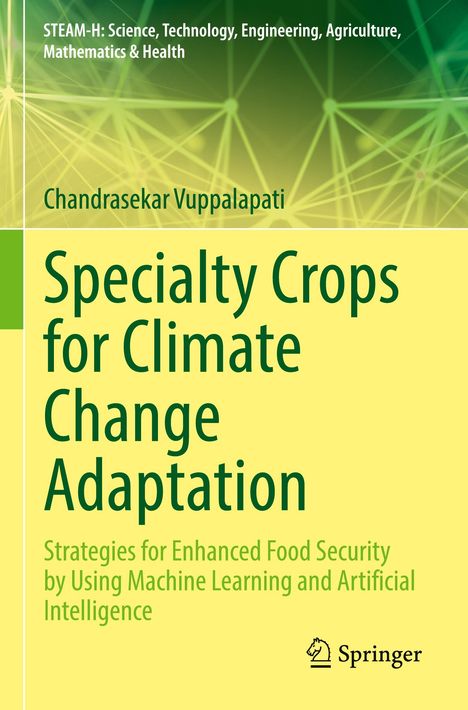Chandrasekar Vuppalapati: Specialty Crops for Climate Change Adaptation, Kartoniert / Broschiert
Specialty Crops for Climate Change Adaptation
- Strategies for Enhanced Food Security by Using Machine Learning and Artificial Intelligence
(soweit verfügbar beim Lieferanten)
- Verlag:
- Springer, 10/2024
- Einband:
- Kartoniert / Broschiert, Paperback
- Sprache:
- Englisch
- ISBN-13:
- 9783031384011
- Artikelnummer:
- 12030368
- Umfang:
- 848 Seiten
- Gewicht:
- 1258 g
- Maße:
- 235 x 155 mm
- Stärke:
- 46 mm
- Erscheinungstermin:
- 15.10.2024
- Hinweis
-
Achtung: Artikel ist nicht in deutscher Sprache!
Weitere Ausgaben von Specialty Crops for Climate Change Adaptation |
Preis |
|---|
Klappentext
Specialty crops are defined as fruits and vegetables, tree nuts, dried fruits, horticulture, and nursery crops including floriculture. The value of specialty crop production in the United States accounted for 18.44 % of the $433.569 billion in agriculture cash receipts collected in 2021. In 2020, that ratio was 21.47% of the $363.464 billion. Specialty crops are gaining increasing attention across nation as demonstrated in the 2018 farm bill (Agricultural Act of the 2018 Farm Bill (P. L. 115-334)) with the increased number of provisions addressing specialty crop issues, reflecting their growing role in the global economy. The cultivation of Specialty crops, nevertheless, has its own challenges. Specialty crops are generally more sensitive to climatic stressors and require more comprehensive management compared to traditional row crops. Specialty crops face significant financial risks threatening US$1.6 Trillion global market due to their higher water demand.
The mission of the book is to prepare current and future software engineering teams, agriculture students, economists, macroeconomists with the skills and tools to fully utilize advanced data science, artificial intelligence, climate patterns, and economic models to develop software capabilities that help to achieve Specialty crops and economic sustainability, through improved productivity for years to come and ensure enough food for the future of the planet and generations to come!

